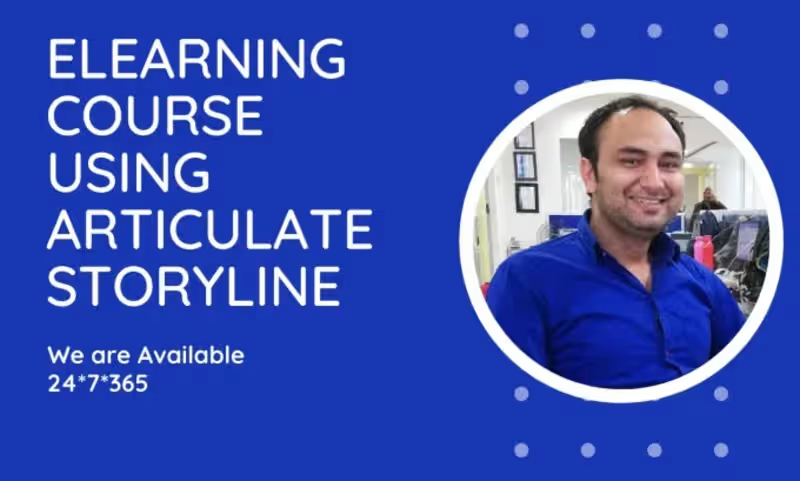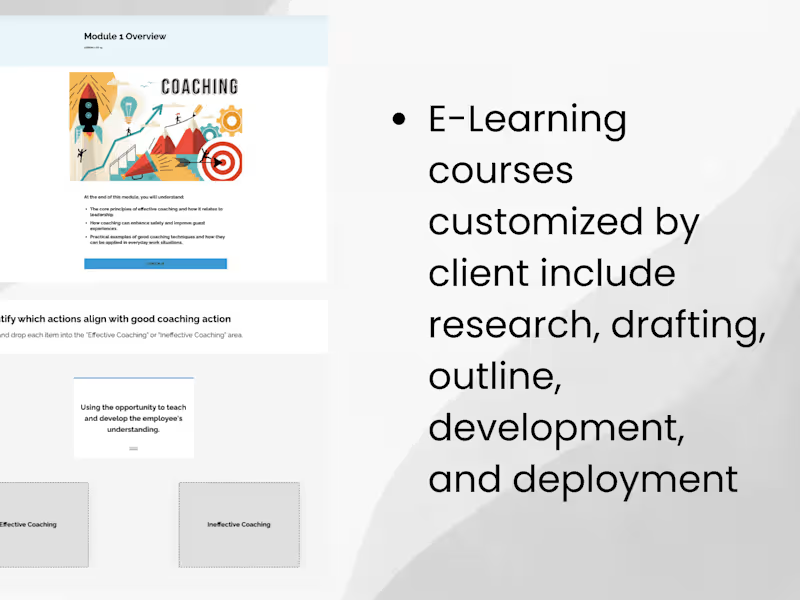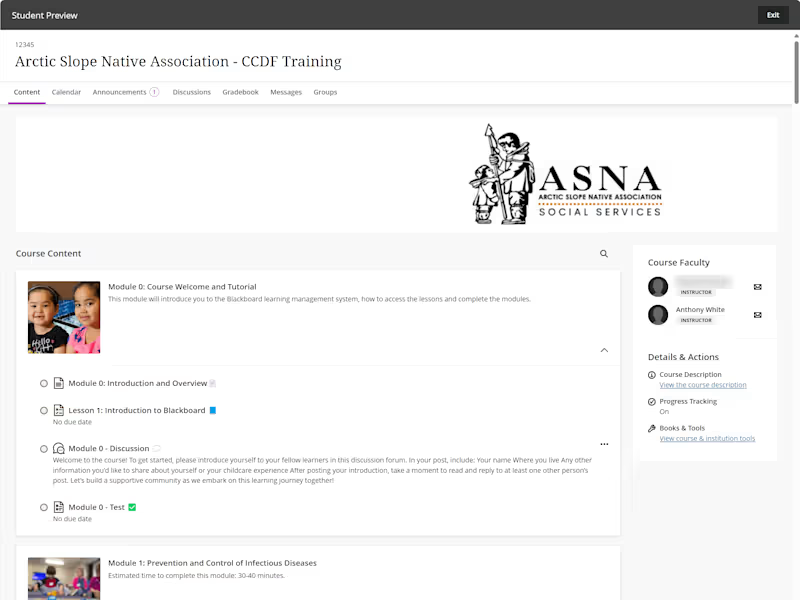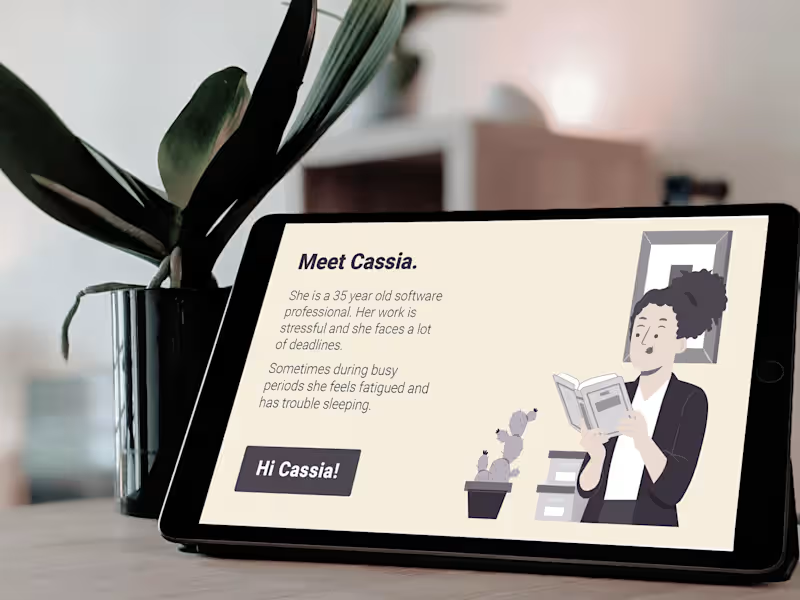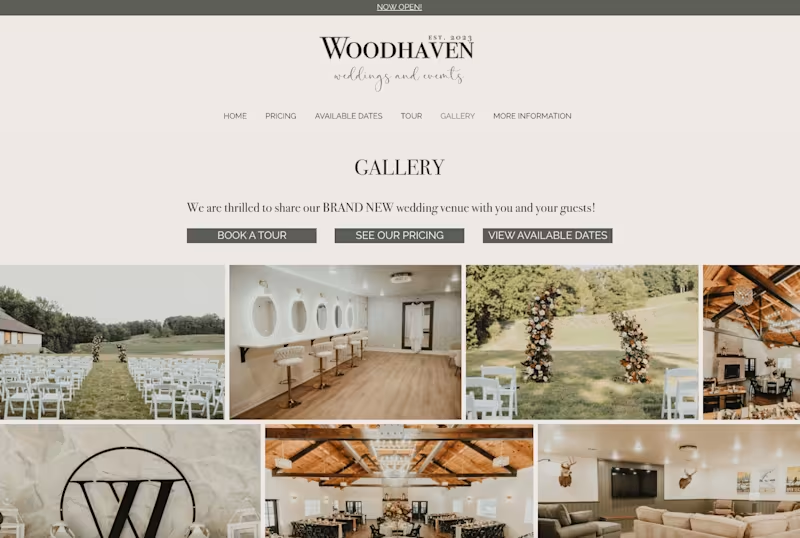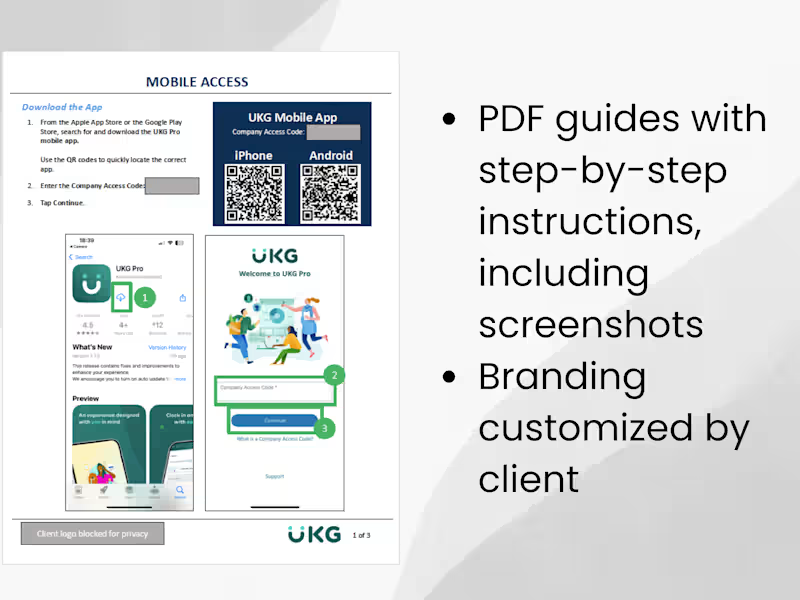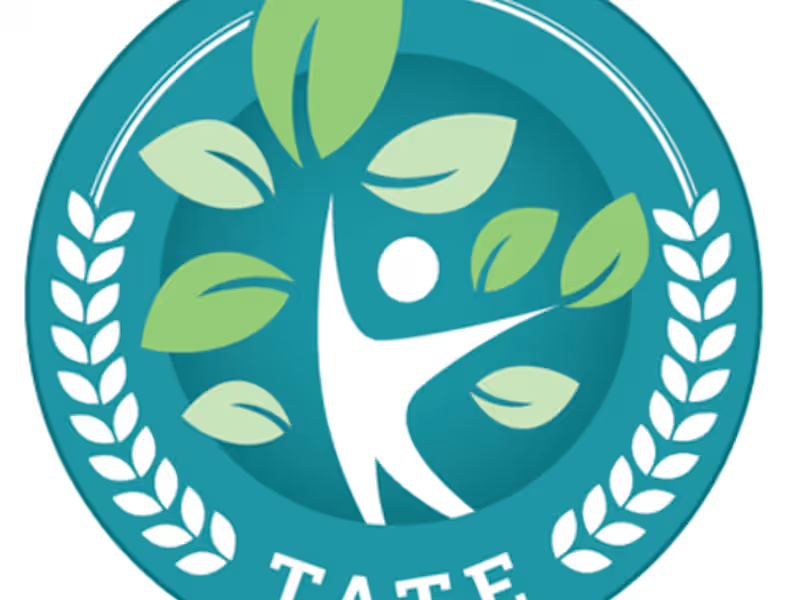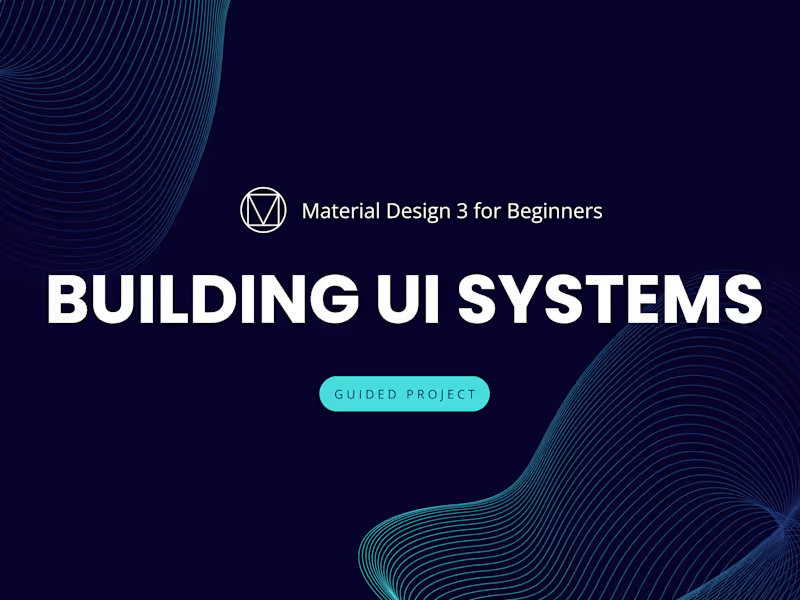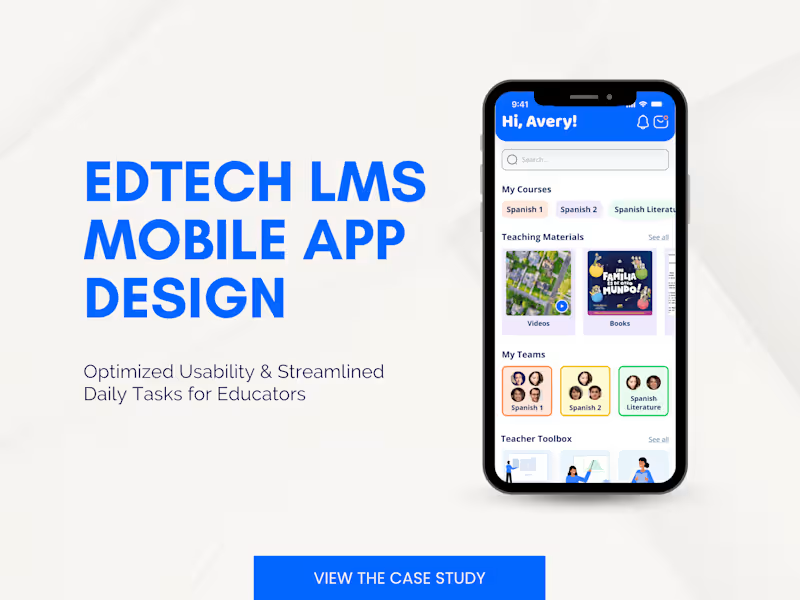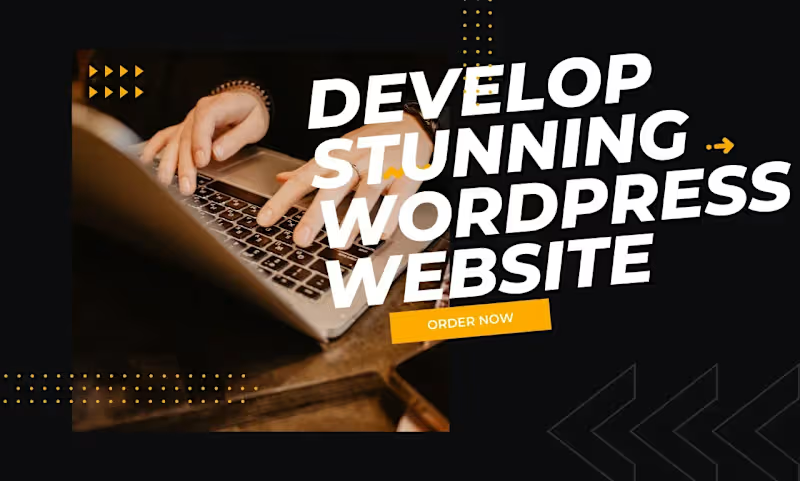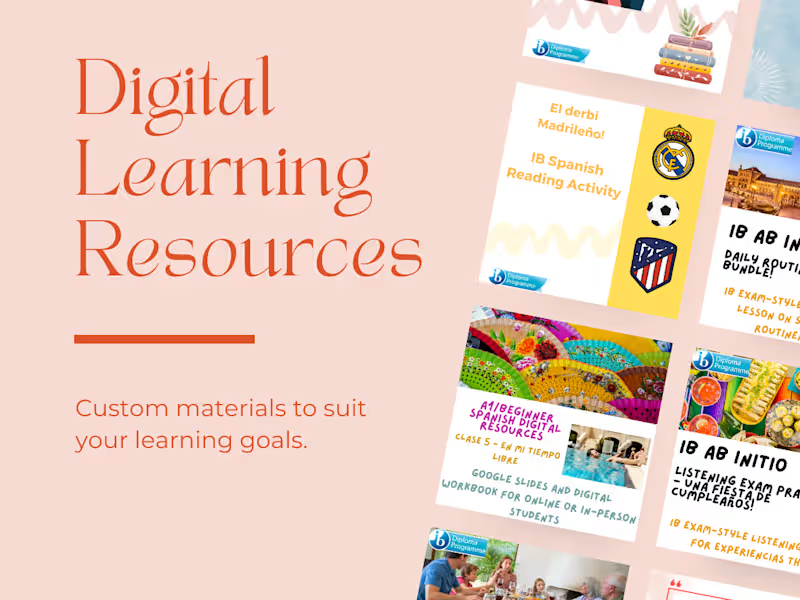Additional resources
What Are Articulate 360 Freelancers
E-Learning Development Specialists
Core Articulate 360 Tools They Master
Difference Between Storyline and Rise 360 Developers
Essential Skills to Look for When Hiring Articulate 360 Freelancers
Technical Proficiency in Authoring Tools
Instructional Design Expertise
SCORM and xAPI Compliance Knowledge
Multimedia Production Capabilities
Accessibility Standards Experience
How to Find Qualified Articulate 360 Experts for Hire
Professional Networks and Communities
E-Learning Industry Associations
Articulate Certified Professional Directory
Remote Work Marketplaces
Evaluating Portfolios of Freelance Articulate 360 Developers
Course Design Samples to Review
Interactive Elements and Branching Scenarios
Mobile Responsiveness Examples
Assessment and Quiz Development
Budget Considerations When You Outsource Articulate 360 Projects
Hourly Rate Structures
Per-Module Pricing Models
Retainer Agreements for Ongoing Work
Geographic Rate Variations
Creating Effective Job Descriptions to Hire Articulate 360 Freelancers
Project Scope Definition
Required Technical Specifications
Timeline and Milestone Expectations
Collaboration Tool Requirements
Interview Questions for Articulate Storyline Freelancers
Technical Competency Assessment
Problem-Solving Scenarios
Portfolio Walkthrough Topics
Communication Style Evaluation
Working with Contract Articulate 360 Designers
Setting Up Project Management Systems
File Sharing and Version Control
Review and Feedback Processes
Quality Assurance Checkpoints
Common Project Types for Freelance Articulate 360 Developers
Corporate Training Modules
Compliance and Certification Courses
Sales Enablement Programs
Onboarding Curricula
Product Training Materials
Red Flags to Avoid When Hiring
Lack of Portfolio Diversity
No Experience with LMS Integration
Poor Communication Patterns
Unrealistic Timeline Promises
Building Long-Term Relationships with Articulate 360 Experts
Performance Evaluation Methods
Skill Development Opportunities
Retention Strategies for Top Talent
Future Trends in E-Learning Development
AI-Powered Content Creation
Personalized Learning Paths
Virtual Reality Integration
Microlearning Design Approaches






























